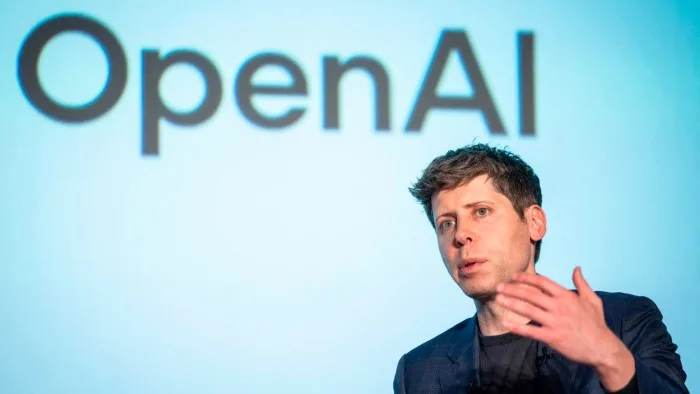This article is an on-site version of our FirstFT newsletter. Subscribers can sign up to our Asia, Europe/Africa or Americas edition to get the newsletter delivered every weekday morning. Explore all of our newsletters here
Good morning and welcome back to FirstFT Asia. In today’s newsletter:
-
OpenAI abandons plan to convert to for-profit business
-
Taiwan’s currency surges over trade deal fears
-
Vatican-Beijing pact looms over papal frontrunner
OpenAI will remain under the control of the group’s non-profit arm, with the ChatGPT maker reversing course after intense criticism from Elon Musk over plans to convert into a for-profit company.
What’s happening: The artificial intelligence company, which recently raised funds at a $260bn valuation, said it would convert its existing for-profit subsidiary into a public benefit corporation, lifting its current cap on returns that investors can receive, but would leave the non-profit with ultimate control. The non-profit will also receive a large stake in the public benefit company.
Musk’s pressure campaign: The decision comes after a backlash to OpenAI’s proposed restructuring to a for-profit company, including a lawsuit from co-founder and tech entrepreneur Musk. The plan also faced widespread criticism from former employees and academics who study AI. OpenAI has been pursuing a simplified corporate structure in order to unlock greater investment. But critics argued that without the non-profit retaining control, it would not have an overarching responsibility to its founding mission: to ensure AI benefits humanity.
Altman said yesterday that the decision to keep the non-profit in control was not motivated by outside pressure. “We’re all obsessed with our mission. You’re all obsessed with Elon.” Read more about OpenAI’s reversal.
Here’s what else we’re keeping tabs on today:
-
Economic data: Vietnam publishes April CPI inflation data, industrial output and trade balance figures. Thailand and the Philippines also report April CPI.
-
US-Canada relations: Mark Carney will meet Donald Trump in Washington in an effort to revive a crucial trading relationship.
-
Germany: Friedrich Merz will take office as chancellor.
How should central banks navigate the new world order? Pose your questions about monetary policy to Chris Giles and other FT experts, and have them answered in a live Q&A on Wednesday.
Five more top stories
1. Taiwan’s currency has recorded its largest two-day jump in decades, as life insurers moved to hedge their exposed US portfolios and markets fretted that a trade deal with Trump might include the exchange rate. Taiwan’s President Lai Ching-te yesterday tried to quell speculation that the US had asked for the currency to appreciate. Here’s how the sudden currency movement could harm the island’s economy.
2. Donald Trump’s threat to impose 100 per cent tariffs on films made abroad would be “devastating” for major Hollywood production hubs in countries including the UK, Canada, Australia and New Zealand, executives warned. But industry insiders also questioned how any tariff could work in practice, given films are not a physical good that passes a border when shown in US cinemas.
-
Tariff fallout: US carmaker Ford said it expects a $1.5bn hit to this year’s operating profits because of Trump’s tariffs. Meanwhile toymaker Mattel is suspending financial guidance to investors and warning of higher prices for American consumers.
-
US business vs tariffs: Trump’s damaging trade war sparked a lobbying campaign by the world’s most powerful business leaders. Did it work?
3. Israeli warplanes yesterday struck targets in Yemen, a day after a ballistic missile fired by Houthi rebels exploded near Israel’s main international airport. The Israel Defense Forces said the planes targeted the Hodeida port complex on the Red Sea, as well as a nearby concrete factory, which the IDF claimed were important sources of income for the Iran-backed Yemeni militant group. Here are more details.
-
Gaza: The Israeli government has approved plans to escalate its offensive in the Palestinian enclave, including the possible full reoccupation of the territory.
4. Brussels has proposed to make it easier for UK professionals to work in the EU through recognition of their qualifications. The plan, which is part of a new EU single market strategy due to be published this month, would accede to a key demand by London and help underpin a post-Brexit reset of relations between the two sides.
5. Private equity is past its peak and faces a huge challenge in selling off trillions of dollars in assets, Egyptian industrialist Nassef Sawiris has told the FT. The billionaire investor also took aim at the industry’s use of “continuation funds” to recycle capital, calling it “the biggest scam ever”.
News in-depth
China is emerging as a potentially significant factor in the outcome of this week’s papal conclave. Cardinal Pietro Parolin, the late Pope Francis’s right-hand man and the architect of the Vatican’s 2018 deal with Beijing, has emerged as an early favourite to succeed his former boss. But Parolin’s signature achievement in China now looms large over his prospects.
We’re also reading . . .
-
Art of the deal: The mayhem of Mar-a-Lago is less effective than the boredom of Brussels, writes Gideon Rachman.
-
The traditional right: With the far right ascendant in much of the west, one region is turning to leaders with more conventional agendas, writes Ruchir Sharma: Latin America.
-
‘Italian torpedo’: A decades-old litigation tactic that uses slow judicial proceedings to frustrate opponents has seen a resurgence in post-Brexit Britain.
Chart of the day
Extreme weather means wildfires and flooding are becoming more likely, posing a risk to urban areas around the world. Here are the cities some scientists call “sitting ducks” — the places most vulnerable to climate disasters.

Take a break from the news
Will train WiFi ever work? Henry Mance explains why connection is so spotty, and whether there is solution in sight.


